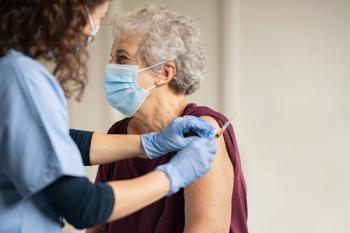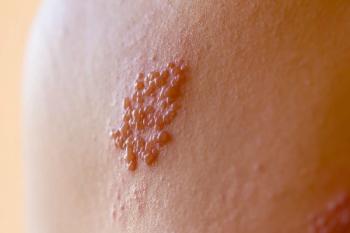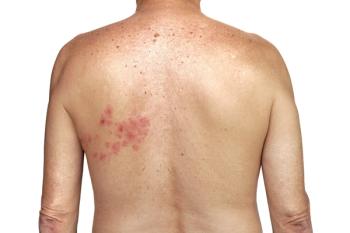
Study Reveals How Shingrix Vaccine Works
New shingles vaccine produces more antibodies against virus.
Shingrix-which received a preferred recommendation from the CDC in late 2017-claims to be more than 90% effective against the herpes zoster virus, better than its only competitor, Zostavax. A new
Shingrix differs significantly from other vaccines that are made from a weakened form of a virus. It is the first shingles vaccine to combine a non-live antigen with a specifically designed adjuvant. It contains a single protein-glycoprotein E-found in the outer shell of the herpes zoster virus, and an adjuvant to enhance the body's immune response to an antigen. Since Shingrix does not contain a live virus, it may be a good option for immunocompromised patients at high risk for shingles, for whom Zostavax is contraindicated.
The study was conducted by the Westmead Institute for Medical Research in Australia and published in the
According to Tony Cunningham, a professor and executive director at Westmead and lead researcher on the study, the risk of developing shingles rises as the body’s natural T cell immunity declines. The study concludes that the vaccine stimulates production of a specific immune memory cell (CD4 T cells) that generates a strong and sustained protection against the virus.
"The body has two types of immunity: protein antibodies and white blood cells known as T cells,” explains Cunningham in a prepared statement. “As the virus circulates around the body, antibodies block it from entering cells. But when the virus does get into cells, your T cells try to kill those infected cells.”
The research found that Shingrix stimulates the immune system to produce more antibodies and generates a 24-fold increase in T cells over Zostavax. While Shingrix offers protection for up to four years, Cunningham believes its effects will last much longer, and that the second dose is important to ensure long-term protection.
Shingrix’s efficacy is approximately 90% for all age groups, even for individuals over age 70. "This is quite remarkable because there are no other vaccines that perform nearly so well for people in their 70s and their 80s. We are seeing results comparable to those of childhood vaccinations,” says Cunningham. "What's particularly exciting, though, is that 90% of recipients had an increased immune response sustained across the three-year duration of the study. We are now measuring the efficacy of the vaccine over the next 10 years and are very optimistic about the results."
Virtually all people over the age of 40 have had chickenpox and are at risk of developing shingles and its associated complications like
Vaccination is the only way to protect against shingles. The CDC’s Advisory Committee on Immunization Practices (
Newsletter
Pharmacy practice is always changing. Stay ahead of the curve with the Drug Topics newsletter and get the latest drug information, industry trends, and patient care tips.























